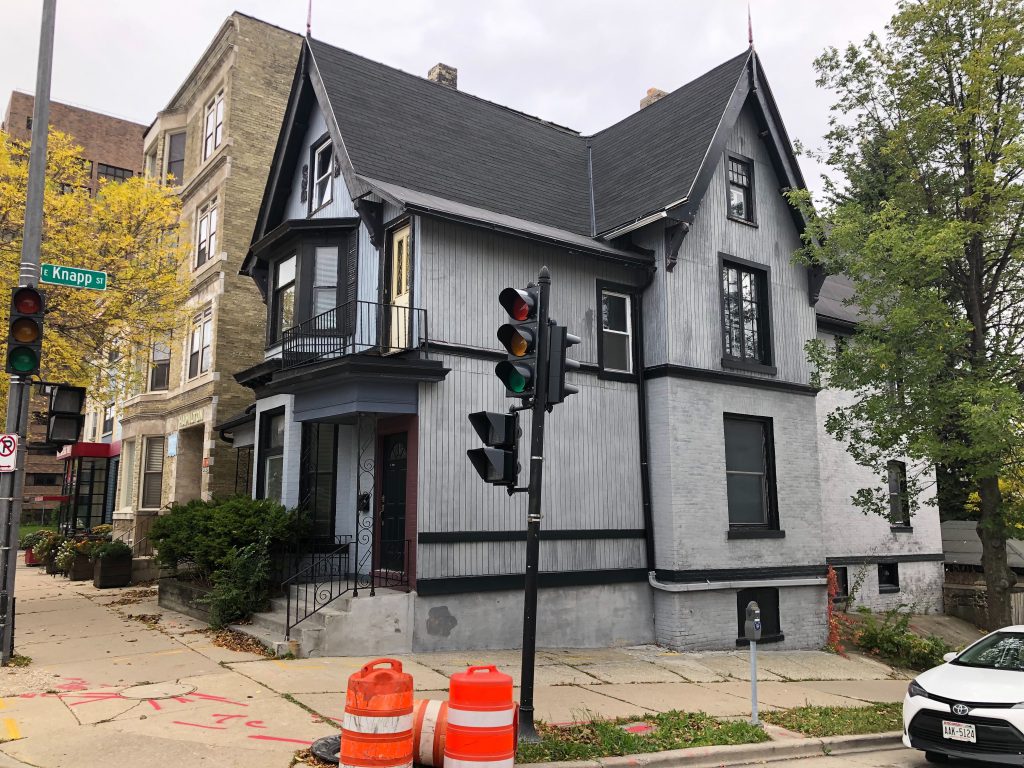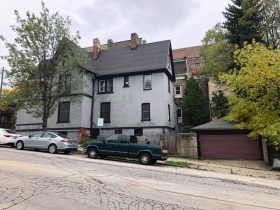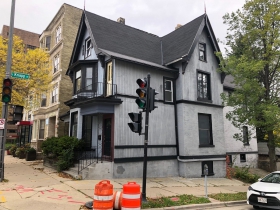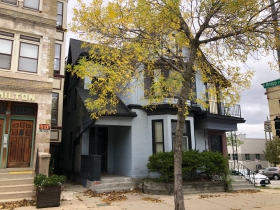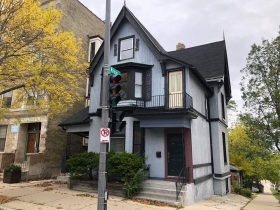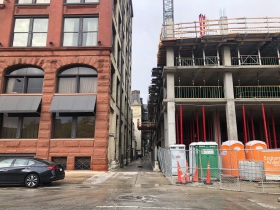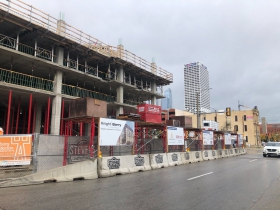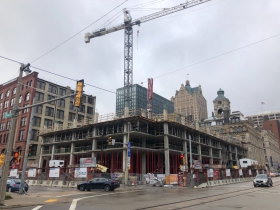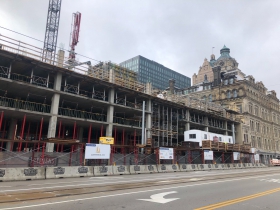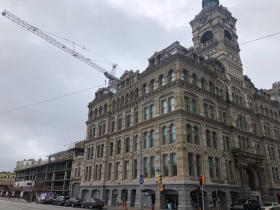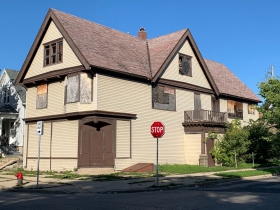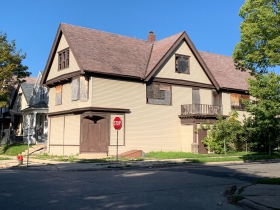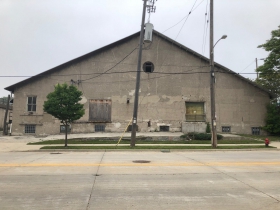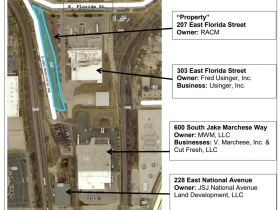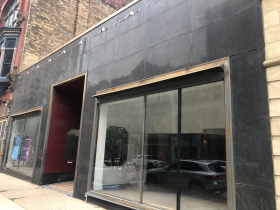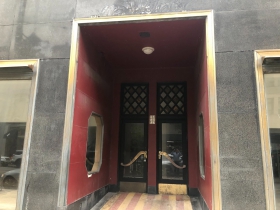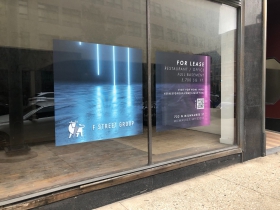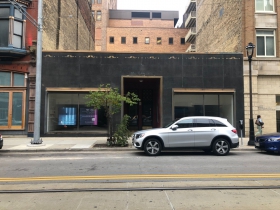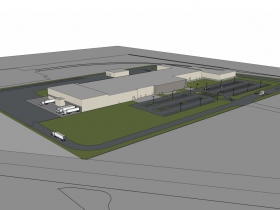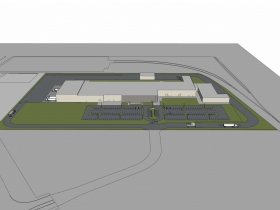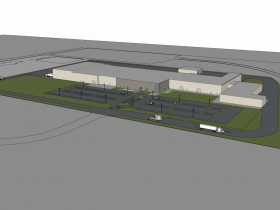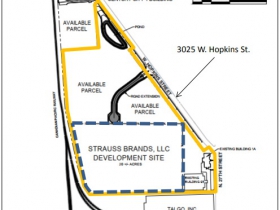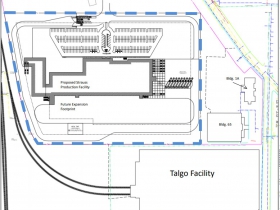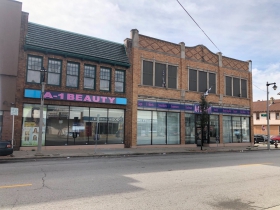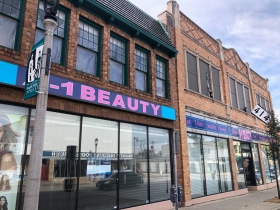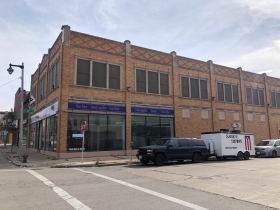NBA Player Plans Downtown Apartments
Big week in real estate with Couture taxes, Strauss, Marchese, Airbnb, Scott Lurie and more making headlines.
Milwaukee Bucks guard Pat Connaughton is working on more than his jump shot. The professional basketball player is developing an apartment building in downtown Milwaukee.
The 26-year-old Bucks guard, who has been with the team since the start of the 2018-19 season, acquired the duplex at 1245-1247 N. Milwaukee St. in March for $325,000 according to city records.
Connaughton’s firm, Beach House, is seeking to demolish the building, built in 1899, and replace it with a three-story, three-unit apartment building.
“He hopes to be in Milwaukee for quite some time and we as a company hope to be building in Milwaukee for quite some time,” said Beach House director of project management Joseph Stanton to the Milwaukee Business Journal earlier this week. Stanton, a childhood friend of Connaughton, said the firm is already working to acquire an undisclosed second property in Downtown for a mixed-use project.
The athletic shooting guard spent the first three seasons of his career in Portland, where his firm recently completed a four-unit project.
Connaughton told CloseUp360.com earlier this year that “around 10” professional athletes have invested in his firm. Connaughton has connections beyond the NBA: the college baseball pitcher was drafted by MLB’s Baltimore Orioles in 2004 and the team controls his rights through 2020.
The two-sport star has earned approximately $4.5 million in salaries during his basketball career according to Basketball-Reference.com. Connaughton is scheduled to be paid $1.7 million this season.
The Milwaukee project is being designed by Nathan Remitz of Patera according to city records.
The building will have a variety of unit sizes, owing in part to the sloped site, placing a fourth floor below grade from N. Milwaukee St. Two apartments will span two floors, a 1,476-square-foot unit and 3,132-square-foot unit. A third apartment will have one bedroom and 840 square feet of space.
The new building would be located kiddy corner from the proposed Convent Hill South apartment tower being developed by an arm of the Housing Authority of the City of Milwaukee.
The four-bedroom property the firm is proposing to demolish is not historically protected by the city. The firm applied for a raze permit last Tuesday.
House Photos
The Couture Developer Pays Back Taxes
Barrett Lo Visionary Development has paid the back taxes owed on the site of The Couture, a proposed 44-story apartment tower. Radio host Mark Belling was the first to report on the approximately $400,000 in taxes and late fees owed on the two-acre site at 909 E. Michigan St. shortly after the city officials discussed options to route the streetcar around the long-delayed tower.
Barrett Lo officials described the unpaid taxes as an oversight and promised to pay them, but not before city officials gave the firm an October 31st deadline. Barrett Lo partner Tan Lo texted reporter Sean Ryan a copy of a receipt for $401,559.11 in paid taxes from the City Treasurer on Friday afternoon.
USPS Lawsuit Thrown Out of Court
The eviction lawsuit from downtown post office building owner R2 Companies has been dismissed.
R2 bought the building at 341 W. St. Paul Ave. in 2015 and announced a significant redevelopment plan. The suit alleged that the United States Postal Service had not taken proper care of the facility.
“U.S. Magistrate Judge Nancy Joseph ruled Wednesday that the lawsuit failed to state a claim on which relief could be granted and dismissed it, giving the property owner 30 days to potentially file an amended complaint,” reported Arthur Thomas for BizTimes.
“This dismissal notwithstanding, we accomplished our main objective when the USPS began significant repairs on the property earlier this year,” R2’s Matt Garrison said in an email to Thomas. “We are watching, and expect the property to be maintained and avoid ‘voluntary waste’, or we may take further action.”
But that’s only one piece of USPS news from this week. The postal service also filed plans to build a $36 million facility in Oak Creek near the airport that is intended to replace the current Oak Creek facility. A USPS spokesperson declined to say whether the new facility would also include enough capacity to replace the downtown facility. USPS can renew its downtown lease through 2040.
The Huron Rises
A downtown dead zone will soon be no more.
Construction work has reached the third level of the 11-story Huron Building at E. Clybourn St. and N. Broadway.
Besides being a place of business, the new building at 511 N. Broadway will serve as a link between the Historic Third Ward and East Town neighborhoods. The $60-million project replaces one half of a block of Broadway where a street-deadening surface parking lot was across the street from another surface parking lot. A streetscaping project, funded by increased tax revenue from the development, will further enhance the connection with lighting under Interstate 794.
The office building will be anchored by law firm Husch Blackwell. The firm will lease 71,000 square feet for 180 employees in the building. Its office space will be built with a variety of “me” and “we” spaces, intended to balance the need for private offices with a growing push for spaces for collaboration in modern office layouts. The firm, headquartered in Kansas City, believes the office design will be an asset in its future recruitment efforts.
J. Jeffers & Co. is developing the building.
Historic Preservation Created 128,500 Jobs in 2018
A study by Rutgers University’s Center for Urban Policy Research found that the federal historic preservation tax credit program created 128,500 jobs, added $7.4 billion to the gross domestic product and resulted in $5.4 billion of income during the federal government’s 2018 fiscal year (October 1st, 2017 – September 30th, 2018).
The income tax credits, which cover 20 percent of applicable redevelopment costs on income-producing projects, are administered by the National Park Service and support real estate projects that often take years to complete. Thirty-five states, offer a supplementary state credit (including Wisconsin, at 20 percent) to further offset the cost to rehabilitate federally-designated historic properties.
The program has been under attack at both the state and federal levels in recent years. Republicans in Wisconsin sought to scale back the program, eventually capping it at $3.5 million per project, after increasing the state credit from five percent to 20 percent in 2013 set off a wave of redevelopment projects. The 2017 federal tax law changes nearly resulted in the program being eliminated.
But despite the attacks, applications for the program remain strong. The National Park Service received 1,907 applications in fiscal year 2018, including 27 from Wisconsin, and approved 1,804 (24 in WI). It certified 1,013 projects as complete to rehabilitation standards set by the agency, including 22 in Wisconsin. During the 2018 fiscal year, $7.7 billion was invested in tax credit projects, including $134.6 million in Wisconsin. Learn more.
Milwaukee Is Fastest Growing Airbnb Destination
Milwaukee finds itself in an unusual place – atop the list of trending travel destinations on home-sharing service Airbnb.
Due in large part to the Democratic National Convention (July 2020) and the Ryder Cup (September 2020 in Kohler), Milwaukee has seen a 729 percent growth in year-over-year bookings.
Milwaukee offerings on Airbnb range from furnished apartments in large buildings and extra bedrooms in homes to the boat house ($1,295 a night during the DNC) and mansions on the East Side.
We reported in September on a large Westown apartment complex that was having units converted to short-term rentals by an Airbnb-focused startup. A seven-bedroom Gothic mansion, long listed for sale, is also listed on Airbnb, but not available during the DNC (book it for $995/night in April). Learn more.
Healthy Meat Market Coming to N. 22nd St.
A new market for healthy foods is planned to open next summer in the north side Amani neighborhood.
Carl Wesley, President and CEO of the non-profit Center for Self-Sufficiency, came before the Common Council’s Zoning, Neighborhoods & Development Committee Tuesday morning to secure approval to purchase a city-owned building at 3000 N. 22nd St.
“It’s a neighborhood that has seen a lot and suffered a lot of loss,” said Wesley. He would know; he spent a lot of time growing up at his grandma’s house on N. 22nd St. and she still lives there today. “This is something that I’m really passionate about and being able to go back to my neighborhood and start there is something I’m excited about as well.”
Wesley would purchase the two-story building for $1,000 and invest approximately $207,000 in renovating it according to a city report, including rebuilding the first floor to have large windows and awnings.
The market, Farm 2 Fork, would focus on organic meats, but would also carry fresh produce. “We understand that a lot of the people we are seeking to serve don’t eat the vegetables and other things they should be eating,” said Wesley. “We understand that they still eat meat and fish and things like that.” Learn more.
V. Marchese Acquiring More Land for Expansion
Fruit and vegetable wholesaler V. Marchese Inc. is acquiring more city land for its planned expansion.
The company, which hopes to grow its employment base at its Walker’s Point facility by 50 to 100 employees, purchased a 107,600-square-foot lot south of its facility in 2018 from the city. That land will be used for an employee parking lot.
Now the company is back to purchase a long and narrow 37,512-square-foot lot at 207 E. Florida St. that was last used as a railroad spur by Union Pacific. The city acquired the property in 1994 as part of creating the Florida Yards development that brought Marchese and Usinger’s to Walker’s Point.
As part of its expansion, Marchese intends to build a 40,000 to 50,000-square-foot addition on the west side of its facility. The expansion would cover the portion of the spur that is on Marchese’s land and a portion of its existing employee parking lot and truck queuing area.
But the railroad still held an easement to the long-unused spur.
“Railroad companies being railroad companies, they wouldn’t allow Marchese to just buy or take control of a portion of their spur, they want them to take all of it,” said Department of City Development project manager Benji Timm in September. “They paid a significant amount to take that railroad easement.” That included buying out the easement on the city’s portion of the spur.
“It’s not all for naught,” said Timm. “They will remove the railroad spur and use it for truck queuing.” The city will sell the parcel for $1. Read on.
Lurie Buys Milwaukee Street Black Hole
Developer Scott Lurie has acquired the long-vacant, one-story building at 733-737 N. Milwaukee St.
Lurie, through his firm F Street Group, acquired the property for $575,000 from the estate of Caroline Kondos. A crew has been spotted clearing out the building in recent weeks.
The block is one of the most food-centric in the city with restaurants and bar-restaurants like Brunch, Carnevor, Cubanitas, Indulge, Lucid Light Lounge, Pastiche at the Metro, Third Coast Provisions and Zarletti. But throughout the past two decades, and enough closing and openings on the block to make your head spin, the one-story building at 733-737 N. Milwaukee St. has been vacant.
F Street Group might be just the firm to turn things around. The firm recently developed The 42 at The Brewery, home to Milwaukee Brewing Company and the firm’s own Glass + Griddle restaurant. It also owns and operates Pizza Man.
Lurie also knows the block. Firms affiliated with the developer own the building across the street at 730 N. Milwaukee St., most recently occupied by the three-story Dick’s nightclub, and the office building at 400 E. Wisconsin Ave.
The developer told Urban Milwaukee in an interview that he’s engaged architecture firm RINKA, located one block north, to explore design concepts for the 5,700-square-foot space. “We don’t have any plans yet,” said Lurie, who noted that F Street could lease the space to a tenant or develop a concept themselves. Learn about the building’s unusual history.
Committee Approves $60 Million Century City Deal
The Common Council’s Zoning, Neighborhoods & Development Committee unanimously approved the creation of a tax incremental financing (TIF) district and an associated land sale for Strauss Brands‘ $60 million proposal to build a meat processing facility in Century City.
The company anticipates having 500 employees in the central city business park by 2031, at least 250 of which would be in newly created jobs. It would relocate its headquarters and operations from Franklin to the city as part of the deal.
The facility would have the capability of processing 100 million pounds of meat annually said Strauss Chief Financial Officer Jerry Bussen.
The city, through the TIF district, will provide up to $4.5 million plus interest to the company in the form of a property tax rebate over a maximum of 25 years. To receive the entire allotment the facility must meet an approximately $10 million property tax assessment target and the full-time jobs paid 150 percent of the federal minimum wage must grow from 250 to 500. The company would receive a pro-rated amount if it does not meet both targets.
The company would purchase 20 acres from the city located just north of the former Tower Automotive facility now leased by train equipment manufacturer Talgo. The site, to be sold to Strauss for $1, would be carved out of an approximately 45-acre site at 3025 W. Hopkins St. between Talgo and the Century City I building now owned by Good City Brewing.
Strauss refers to the facility as a “harvesting” facility, but Bussen confirmed to Alderman Robert Bauman that it is in fact a slaughterhouse, but would not have a rendering plant to process animal waste. Read more.
Deconstruction Program Expected to Restart Next Week
The city’s deconstruction program, intended to create jobs and salvage reusable building materials, has been mired with false starts, a changing market and political infighting. But work on the city’s first sizable deconstruction contract, awarded in April to Spencer Renovation & Construction, should finally get underway next week after months of delay.
The Milwaukee Common Council approved a deconstruction ordinance in late 2017, requiring buildings being taken down that were built in 1929 or before be deconstructed, as opposed to mechanically demolished with heavy equipment, and that materials be salvaged instead being sent to the dump. The ordinance applied to both the city and private citizens seeking demolition permits.
“We got into this with the goal of creating jobs and promoting sustainability. Two goals which this city has spent the last decade talking about,” said Alderman Bauman in January. Bauman and Ald. Nik Kovac sponsored the legislation and argued that the jobs would be of particular value because they would be entry-level jobs that provided training.
But after a few pilot deconstructions, the Department of Neighborhood Services (DNS) reported it was receiving increased bids for as much as $60,000 per home and a backlog of buildings to be razed was growing. In January council members Milele A. Coggs and Russell W. Stamper, II, each of whom have a number of homes slated for demolition in their district, introduced a resolution that suspended the deconstruction ordinance until March 2020 and required DNS to develop a team in-house or contract with an outside vendor to develop the capacity to utilize the $1.2 million the council allocated specifically for deconstruction.
And in April, Billy Spencer of Spencer Construction was before the Zoning, Neighborhoods & Development Committee and expected to begin work shortly on deconstructing 50 homes. But that didn’t happen.
“We were fooling around all summer shuffling paper,” said Bauman of DNS and other city departments Tuesday morning. Read on.
The State of TIF in Milwaukee
It’s getting close to 2020, but the Common Council’s Zoning, Neighborhoods & Development was finally able to accept the 2018 report on tax incremental financing (TIF) districts.
The annual report, originally prepared in June, details the special property taxing districts created by the city and their financial performance.
The city uses the state-regulated districts to pay for public infrastructure, like riverwalk segments, street paving and streetcar construction, and to support projects with financing gaps, including everything from Northwestern Mutual‘s new downtown office tower to affordable housing complexes. Some districts consist of a single property, while others include nearly entire neighborhoods. Districts have a maximum life of 27 years.
Milwaukee, which is moving to create its 101st TIF district for Strauss Brands, had 52 active TIF districts at the end of 2018. Those districts included $1.8 billion in incremental property value.
That $1.8 billion figure represents 6.38 percent of the city’s assessed property values and is roughly half of the state-imposed 12 percent TIF limit. From districts closed prior to 2018, $1.3 billion in incremental value has been created and is now on the property tax roll.
Project costs remaining to be recovered from the active districts are pegged at $238.8 million in the Department of City Development (DCD) report. Developer-financed TIF districts are not included in that calculation. Learn more.
Pattee Considering Options for Mitchell Street Property
Developer Ryan Pattee acquired a two-building complex at 729-737 W. Historic Mitchell St. in August. But what comes next remains up in the air.
“It was a speculative buy,” said Pattee in an interview. “It was a very good price per square foot.”
The developer paid $330,000 for the 27,000-square-foot complex, approximately $12 per square foot.
Pattee told Urban Milwaukee’s he considering multiple offers, one of which could involve selling the building to a prospective tenant.
“We will know more in the next couple of days,” said Pattee. Read on.
Civic Accelerator Returning
Co:Lab, a civic engagement program focused on creating real-world solutions to problems facing Milwaukee’s commercial corridors, will return for a second year.
The program, which had a pilot cohort earlier this year, is a partnership between NEWaukee, The Commons, an initiative of the Greater Milwaukee Committee, and Startup Milwaukee.
“We intend for Co:Lab to serve as a resource for young professionals eager to ‘do more’ in their hometown and to have a true impact by using their skills to support local neighborhood organizations,” said NEWaukee CEO Angela Damiani in a statement.
Participants in the 2020 program will work with Clarke Square, Lindsay Heights and Riverworks. Learn more.
If you think stories like this are important, become a member of Urban Milwaukee and help support real independent journalism. Plus you get some cool added benefits, all detailed here.
More about the Couture
- The Couture Names First Retail Tenant - Sophie Bolich - Jun 6th, 2025
- Streetcar Begins Daily Service To The Couture, BRT Will Soon Follow - Jeramey Jannene - Apr 11th, 2024
- Friday Photos: See The View From The Couture’s Upper Levels - Jeramey Jannene - Mar 8th, 2024
- The Couture Shows Off First Apartments - Jeramey Jannene - Jan 24th, 2024
- Transportation: Streetcar Extension Opens Sunday - Jeramey Jannene - Oct 28th, 2023
- Lakefront Streetcar Extension Opens October 29 - Jeramey Jannene - Aug 22nd, 2023
- Eyes on Milwaukee: See Inside The Couture’s Rise - Jeramey Jannene - Mar 9th, 2023
- Transportation: Congress Extends Streetcar Grant - Jeramey Jannene - Mar 16th, 2022
- Eyes on Milwaukee: The Couture Starts Massive Concrete Pour - Jeramey Jannene - Mar 16th, 2022
- City Hall: Council Could End Fight Over Couture Provision - Jeramey Jannene - Feb 22nd, 2022
Read more about Couture here
Political Contributions Tracker
Displaying political contributions between people mentioned in this story. Learn more.
- May 19, 2016 - Robert Bauman received $386 from Scott Lurie
- February 26, 2016 - Russell W. Stamper, II received $794 from Tan Lo
- January 29, 2016 - Russell W. Stamper, II received $200 from Carl Wesley
- November 10, 2015 - Robert Bauman received $386 from Scott Lurie
- September 11, 2014 - Robert Bauman received $386 from Tan Lo
Plats and Parcels
-
New Third Ward Tower Will Be Milwaukee’s Priciest
 Mar 3rd, 2024 by Jeramey Jannene
Mar 3rd, 2024 by Jeramey Jannene
-
New Corporate Headquarters, 130 Jobs For Downtown
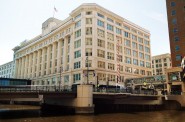 Feb 25th, 2024 by Jeramey Jannene
Feb 25th, 2024 by Jeramey Jannene
-
A Four-Way Preservation Fight Over Wisconsin Avenue
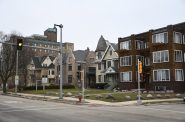 Feb 18th, 2024 by Jeramey Jannene
Feb 18th, 2024 by Jeramey Jannene


